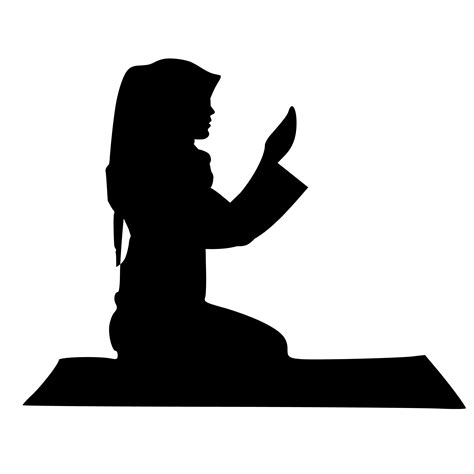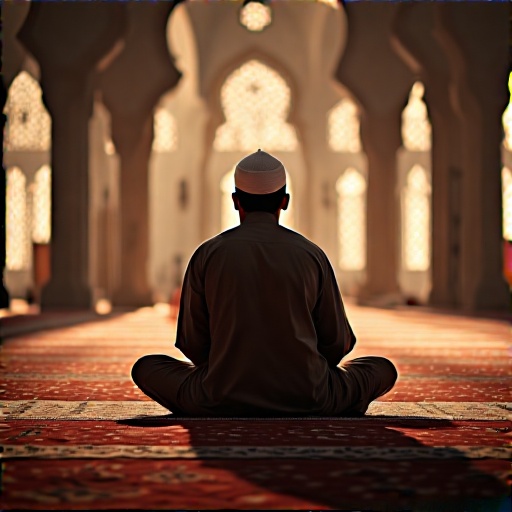Dua-supplication-is the believer’s most intimate and powerful means of communicating with Allah (SWT). It is a sacred conversation, a direct link between the servant and the Creator, and a core element of Islamic worship. The Prophet Muhammad (PBUH) described dua as “the essence of worship” (Tirmidhi), highlighting its central role in the life of a Muslim. Yet, for our supplications to be most effective and pleasing to Allah (SWT), the Quran and Sunnah lay out a beautiful etiquette that shapes both the heart and the form of our requests.
The Significance of Dua in Islam
Dua is not simply a list of requests-it is an act of humility, gratitude, and faith. It acknowledges our dependence on Allah (SWT) and our trust in His wisdom and mercy. The Quran invites believers to call upon Allah (SWT) with hope and reverence:
“Call upon Me; I will respond to you.”
(Quran 40:60)
This divine promise assures us that every sincere supplication is heard, and that Allah (SWT) responds in the way that is best for His servant.
Preparing the Heart and Body for Dua
Purity and Presence
Before making dua, it is recommended to be in a state of physical and spiritual purity. Performing wudu (ablution) is highly encouraged, as it reflects both outward and inward cleanliness. Facing the Qiblah (direction of the Kaaba) and sitting humbly with raised hands are Sunnah practices that help focus the heart and mind.
The Prophet Muhammad (PBUH) would often face the Qiblah and raise his hands when making dua, demonstrating humility and submission. While these actions are not obligatory, they enhance the sincerity and focus of the supplication.
Sincerity and Humility
The most important condition for dua is sincerity (ikhlas). Allah (SWT) says:
“Call upon your Lord in humility and privately; indeed, He does not like transgressors.”
(Quran 7:55)
Dua should come from the heart, with a sense of neediness and hope. The Prophet (PBUH) encouraged believers to be humble, to lower their voices, and to ask Allah (SWT) with full conviction that He will answer.
The Etiquette of Making Dua: Step by Step
1. Begin with Praise and Salawat
The Prophet Muhammad (PBUH) taught that dua should begin by praising Allah (SWT) and sending peace and blessings upon the Prophet (PBUH):
“When one of you prays, let him start by praising his Lord, then let him send blessings upon the Prophet, then let him ask for whatever he wishes.”
(Tirmidhi)
This order reflects adab (proper manners) and gratitude, acknowledging Allah’s greatness before presenting our needs.
2. Invoke Allah by His Beautiful Names
Allah (SWT) instructs us in the Quran:
“And to Allah belong the best names, so invoke Him by them.”
(Quran 7:180)
Calling upon Allah (SWT) with His names-such as Ar-Rahman (The Most Merciful), Al-Ghaffar (The Forgiving), or Ar-Razzaq (The Provider)-demonstrates knowledge of His attributes and deepens the connection in supplication.
3. Be Specific, Persistent, and Hopeful
The Prophet (PBUH) encouraged believers to ask for everything, big or small, and to be specific in their requests. He also recommended repeating the dua three times, showing determination and conviction.
He said:
“When one of you calls upon Allah, let him hope for the greatest of things. Verily, nothing has any greatness over Allah.”
(Ibn Hibban)
Persistence is a sign of sincerity. The Prophet (PBUH) said:
“Your Lord is Most Generous and Most Kind. If His servant raises his hands to Him (in supplication), He does not let them return empty.”
(Tirmidhi)
4. Show Humility and Repentance
Dua should be made with humility, acknowledging one’s sins and shortcomings. The Prophet (PBUH) encouraged believers to seek forgiveness and admit their mistakes before asking for their needs. This humility is beloved to Allah (SWT) and opens the doors of mercy.
5. Pray for Others
It is Sunnah to include others in your dua-family, friends, the entire Ummah, and even those who have wronged you. The Prophet (PBUH) said that when a Muslim prays for his brother in his absence, the angels say, “Ameen, and for you the same.” (Muslim)
6. End with Praise and Salawat
Just as dua should begin with praise and salawat, it is recommended to end in the same way[5][7]. This completes the etiquette and increases the likelihood of acceptance.
Additional Sunnah Practices and Recommendations
- Raise your hands: The Prophet (PBUH) would raise his hands to chest level or above when making dua.
- Face the Qiblah: Though not obligatory, it is highly recommended.
- Make dua in a low voice: This reflects humility and sincerity.
- Repeat the dua: Three times is Sunnah, showing persistence.
- Choose the best times: Certain moments are more likely for dua to be accepted, such as the last third of the night, between the adhan and iqamah, during sujood (prostration), after obligatory prayers, on Fridays, and on the Day of Arafah.
- Be patient and trust Allah’s wisdom: Sometimes the answer is delayed or comes in a different form.The Prophet (PBUH) warned against hastiness, saying, “Your supplication will be answered so long as you are not impatient and say, ‘I made dua but it was not answered.’” (Bukhari, Muslim).
Language and Accessibility of Dua
Dua can be made in any language. While Arabic is preferred, especially for Quranic and Prophetic supplications, Allah (SWT) understands all tongues and knows what is in the hearts. What matters most is sincerity and presence of heart.
Conditions and Barriers to Acceptance
Halal Lifestyle
The Prophet (PBUH) emphasized that consuming halal (lawful) food and living a pure life increases the likelihood of dua being accepted:
“Allah is good and only accepts that which is good.”
(Muslim)
Avoiding Sin and Oppression
Major sins, injustice, or earning from haram (unlawful) sources can block the acceptance of dua. The Prophet (PBUH) described a man who, despite his desperate supplication, is not answered because
“his food is haram, his drink is haram, his clothing is haram, and he has been nourished with haram.” (Muslim)
Not Making Dua Against Family or for Sin
The Prophet (PBUH) forbade making dua for sinful purposes or against one’s own family and property. Dua should always be for good, mercy, and guidance.
Contemporary Relevance and Practical Application
In our fast-paced, often stressful lives, dua offers Muslims a refuge of peace and hope. It is a tool for spiritual resilience, a source of comfort in hardship, and a means of drawing closer to Allah (SWT). In times of uncertainty, dua reminds us that we are never alone and that our Lord is always near:
“And when My servants ask you concerning Me, indeed I am near. I respond to the invocation of the supplicant when he calls upon Me.”
(Quran 2:186)
Modern Muslims can incorporate dua into daily routines-during commutes, before sleep, after prayers, and at moments of gratitude or distress. With smartphones and apps, authentic duas are more accessible than ever, but the essence remains sincerity, humility, and presence of heart.
Reflection
Dua is not just a ritual-it is a lifeline, a sanctuary, and a means of transformation. As you raise your hands and open your heart, remember that Allah (SWT) is closer to you than your jugular vein. Approach Him with humility, gratitude, and hope, following the beautiful etiquette taught by the Prophet Muhammad (PBUH). Make dua a daily habit, a source of strength in hardship and gratitude in ease. Trust that every sincere call is heard, and that Allah’s (SWT) response is always for your ultimate good.
May Allah (SWT) grant us all the wisdom to ask with proper etiquette, the patience to wait for His response, and the faith to accept His decree with contentment.







